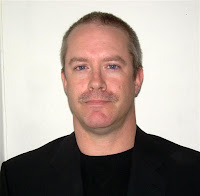The other day I found myself automatically going to a Starbucks in the local mall. The coffee shop was not on my list of places to visit; rather, I entered the store by habit. In other words, this was a decision I made without thinking. While the outcome of this decision has little overall impact on me, other than the opportunity cost of time I could have been doing something else and the economic cost of about $5 for the drink, I’m reminded of the number of decisions we make daily with little or no active thinking.
Reflection and asking questions of oneself reduces the likelihood one uses limited or zero active thinking. Mental shortcuts - called heuristics - are quick ways of thinking that may work in routine and predictable settings with little negative impact, but may lead to problems when they don’t match the situation. Individuals develop these heuristics to manage the number of decisions faced each day. These mental shortcuts are developed over time based on experiences, cultural and religious influences, socioeconomic status, etc. They become a filter - a bias - that leads people to make decisions automatically, often without even being aware of the decision.
Research in the field of judgment and decision-making by such notable persons as Herbert Simon, Amos Tversky and Daniel Kahneman, suggests that much of one’s thinking is really automatic decision-making that is performed without much thought (like driving and having a conversation with someone in the front seat - try to remember every driving decision you have made from point A to B).
Behavioral economist Dan Ariely (2008) suggested that when it comes to the effects of marketing, for instance, "We are pawns in a game whose forces we largely fail to comprehend ... just as we can't help being fooled by visual illusions, we fall for the '’decision illusions' our mind show us" (p. 243). This research suggests because so many decisions are made on autopilot, people fail to make truly informed decisions until they actively think about how these decisions are made. Ariely used the example of standing in line at Starbucks I noted above to illustrate. At some point, one first encounters Starbucks and, lacking experience with the store, goes in to try it. If the experience (and coffee) is pleasant, one may go back again. Over time, one may find him/herself standing in line at Starbucks without even thinking about this (my wife almost always stops at Starbucks, even without thinking about it). Ariely suggests the reader periodically ask themselves, "Why am I standing I line at Starbucks?" If you are good with the decision, keep standing in line; otherwise, maybe it’s time to go to Dunkin' Donuts or even just go back to work. Automatic decisions made every day will not change until you actively thinks about them.
So, next time you find yourself standing in line at Starbucks - or other moments or decisions that, upon examination you find are made with little or zero active thinking, consider how you might improve your awareness of them so you can make better decisions.
Ariely, D. (2008). Predictably irrational: The hidden forces that shape our decisions. New York, NY: Harper.
Jim Triplett is an author, instructional designer, and instructor in the areas of finance, economics, ethics, and critical thinking. Jim holds Masters Degrees in Finance, Organizational Leadership, and Instructional Design Technology, is ABD / PhD in Organization and Management, and is currently completing a doctoral degree, Ed.D, in Educational Leadership with a focus on Educational Technology.















 Ideal for the classroom,
Ideal for the classroom, 




